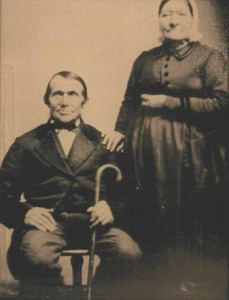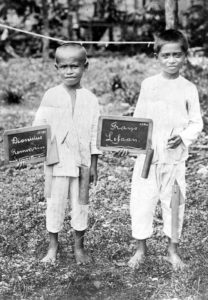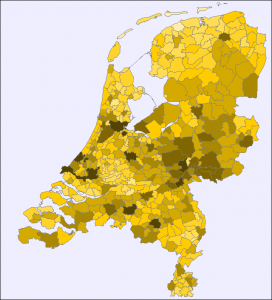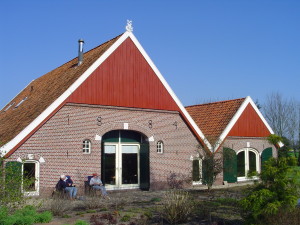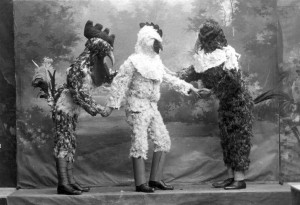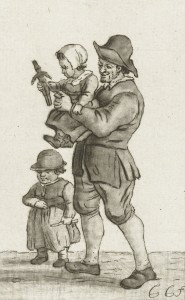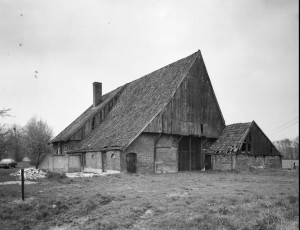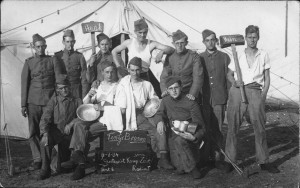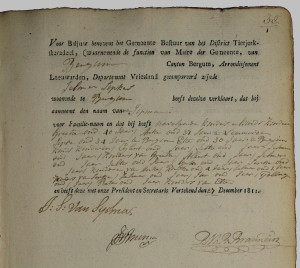If you're looking for the Dutch origins of your immigrant ancestor, keep in mind that the name originally could have been longer than the name the family used in the new country. Long names were often shortened to make them easier to pronounce in another language. After some of my Esselinkpas cousins emigrated to Michigan in the 1800s, they went by Pas. Some members of the Roerdinkveldboom family went by Veldboom after emigration. Another thing to keep in mind is that there might be family … [Read more...]
Quick tip – Some surnames were adopted gradually
As you get further back in time, you will get to the point where you find the first person who adopted a surname. Sometimes that's a distinct event; for example when a Frisian family adopts a last name in 1811 because it is required by the Napoleonic laws upon the introduction of the civil registration. Before 1811, there were no laws and regulations that mandated people to have surnames. Names were often adopted gradually. Not all family members may have adopted the name. A person may appear … [Read more...]
Quick tip – Common Spelling Variations in Dutch names
If you can't find the name you're looking for, try a spelling variation. Most Dutch search engines only find exact matches, so playing around with variations and wildcards may be necessary to find the person you're looking for. Knowing the different spellings of certain sounds in words can help. Examples of spelling variations Element Example k, kk, or ck Hoitink, Hoitinck Bakker, Backer Van Dijk, van Dijck Dirk, Dirck o, oo Gosens, Goosens Noteboom, … [Read more...]
Quick tip – New URL for Database of Surnames in the Netherlands
The database of surnames in the Netherlands has a new home. It is now maintained by the Central Bureau for Genealogy and available at cbgfamilienamen.nl. In the database, you can look up a name to see how popular it was in 1947 and 2007, and where those people lived. In many cases, there will be a description of the origin of the name and literature references to publications about the name. Visit the Database of Surnames in the Netherlands … [Read more...]
Open data case study: Changing names in Winterswijk
The Gelders Archief just published many of their genealogical indexes as open data. This allows everyone to download the indexes and re-use them. Being a bit of a geek, I could not resist downloading some of the sets for Winterswijk to see what I could do with them. Winterswijk is the town where my father was born, and most of his ancestors to0, and I have been working on a one-place-study of Winterswijk for over twenty years. I thought it would be fun to use Excel and see how Winterswijk … [Read more...]
Quick tip – Was your ancestor the first to use the surname?
Let's say you've gone all the way back to the 1500s, 1600s or 1700s and can't find the parents of your brick wall ancestor. Could it be that your ancestor was the first one to use the name? Perhaps your Van Etten really was from Etten, and his parents only used a patronymic. Perhaps your Hoitink ancestor was born on another farm, and only called himself Hoitink after he married a Hoitink daughter and moved into her farm. Perhaps your Marijnissen ancestor was the son of Marijnis, whose … [Read more...]
Quick tip – The last name may not have come from the father
In genealogy, we are used to children having the same last name as their father. But there are several circumstances in which the child could have a different name: If the child used a patronymic, in which case the name of the child would be derived from the father's first name, not his last name (e.g. Pier Hessels, son of Hessel Jans). This mainly happens in the period before the introduction of the civil registration in 1811. If the child was illegitimate, in which case it would have the … [Read more...]
Quick tip – The name may suggest the place of origin
Different regions have different traditions, not only when it comes to naming children but also when it came to choosing surnames. Someone named Bauke Ferwerda is bound to be Frisian, as the suffix -a can mostly be found in the northern provinces and Bauke is a Frisian first name. Janna Geertruida Meerdink is undoubtely from the eastern part Gelderland. Most people in that area used double first names, and the -ink suffix is typical for farm names in the eastern part of the country. Read … [Read more...]
Quick tip: names change
"The past is a foreign country, they did things differently there."1 One of the fundamental differences is the way that people were named. In many parts of the Netherlands, people did not have a hereditary surname until 1811. But even after 1811, names could get changed, for instance if someone emigrated or if the clerk made an error. The next time you're stuck, ask yourself: what other name could this ancestor have used? Related articles: English versions of Dutch last … [Read more...]
Quick tip: find the origin of your name in name taking records
If your family is from the northern provinces, or Jewish, you may find them in name taking records. When the civil registration was introduced, people who did not have a last name yet were required to record their last name. In such cases, the name taking record is often the earliest record you will find for your name. Sometimes, clues about the origin of your name can be found in the name taking records. For example, a carpenter may had called himself Houtsma (hout = wood), an ancestor … [Read more...]
